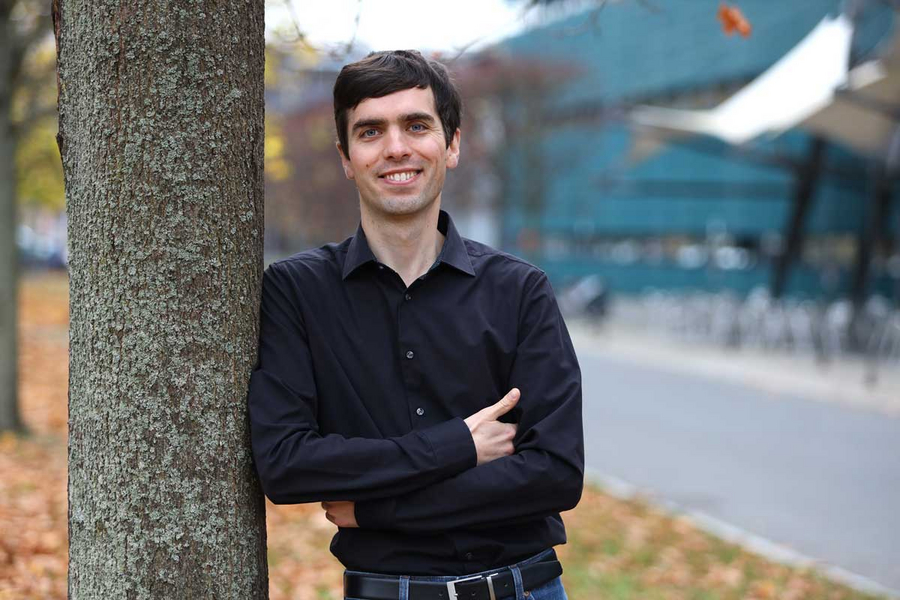
Michael Weber © Katrin Boes / MPI-CBG
Michael Weber joined the Max Planck Institute of Molecular Cell Biology and Genetics (MPI-CBG) as a new research group leader. His research group, “Nanoscale Optical Bioimaging,” has the goal of observing biological processes in real time with high-speed optical microscopy and by using a multidisciplinary approach encompassing biology, chemistry, physics, and engineering.
“The field of fluorescent microscopy is very multidisciplinary. This multidisciplinarity is what fascinates me about this field. Optical microscopy has the unique ability to look inside living cells and visualize biological processes as they are taking place. The fundamental challenge of optical resolution has been overcome in recent decades; however, these developments have come at the cost of a reduced acquisition speed. In most cases, to such a low level that the methods are limited to fixed samples. My goal at the MPI-CBG is to push the speed of high-resolution microscopy techniques to uncover and understand fundamental biological processes.
Welcome to the institute, Michael!
Michael studied physics at the Technical University of Munich. In 2016, he started his Ph.D. work at the Max Planck Institute for Multidisciplinary Sciences in the research group of Stefan W. Hell with a focus on Nano-Biophotonics. For his Ph.D. thesis he was awarded with the Otto Haxel Award for Physics in 2021 and with the Otto Hahn Medal in 2022. Michael continued his postdoctoral work in the group of Stefan W. Hell until 2024, when he became a research group leader at the MPI-CBG.